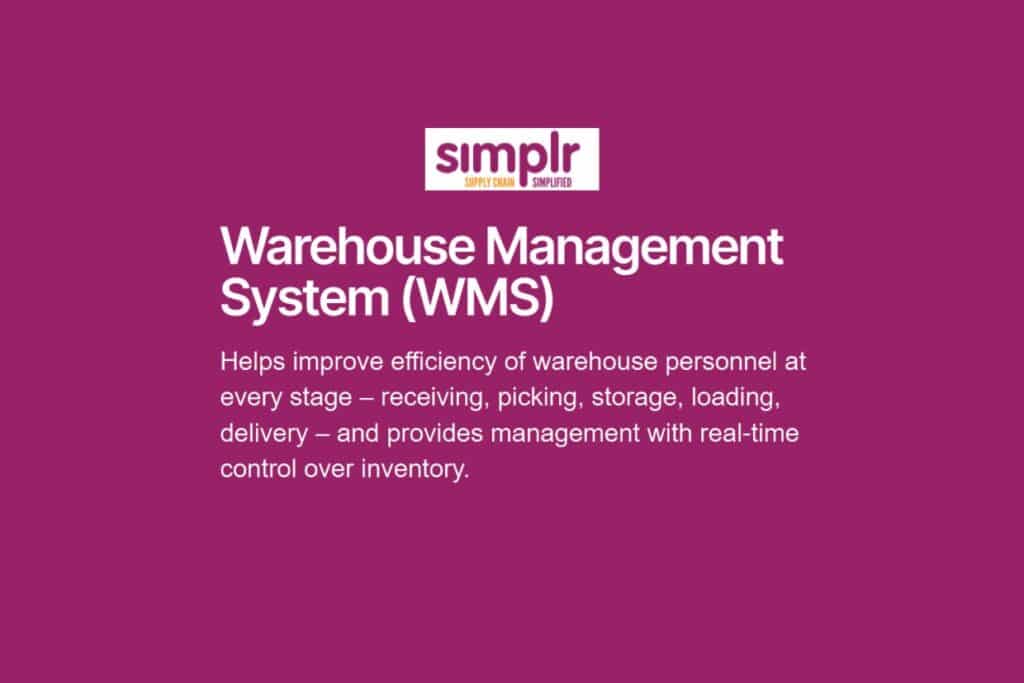Imagine you own an “egg shop” and you sell all different kinds of eggs in your store for your consumers to enjoy a scrumptious egg benedict. Yet, one fine day your brain slips out the information that you have no eggs left to sell for your consumer and you call the retailer to ask for 100 cartons of eggs for the day in a hustle. Here comes your bad luck, the moment when your retailer says “there are no eggs left!” and you will have no business for the day and your consumers will have no “egg benedict” either. Now, this is the moment where a proper distribution management system is very well required!
What is a distribution management system?
A distribution management system (DMS) is a whole process which involves managing the distribution process among manufacturers, distributors, pre-sales, van sales, merchandisers, retailers, and end customers. In simple terms, DMS involves in all most all aspects of distribution in a business, that also involves storing, packaging, warehousing, inventory, order taking, merchandising, van sales, delivery, and so on. It is one of the vital aspects that should be attended to attentively.
Who is a distributor?
Consider the egg vendor’s story. Where will the egg vendor get the eggs to sell off to the end consumer? Do they rear a chicken to get eggs and sell warm eggs to their consumer? No, they do not! They too, buy eggs from another organization or entity and sell them to their consumers. This organization or entity in which they buy the needed products is known as the distributor.
In technical terms, a distributor can be specifically regarded as an entity that buys products in bulk and sells it to either their customers or end-consumers directly.
3 scenarios that a distributor takes part in.
A distributor takes part in 3 different scenarios or 3 different ways based on the industry during the whole process of distribution management, as follows,
- Manufacturer > distributor > retailer > consumer
- Manufacturer > distributor > wholesaler > retailer > consumer
- Manufacturer > consumer
For a better understanding let’s look through the coca-cola distribution management and Amazon distribution management system.
Example 01 on distribution management system.
As an example, if we consider a case study of a reputed brand such as Coca-cola in regard to the distribution strategy, coca-cola tends to sell its products to different bottling and canning companies, wholesalers, retailers, and distributors. It comprises a 250-bottling partner system and operates globally through local channels such as convenience stores, groceries, and even your nearest town shop. The relationship between the bottling companies is independent, yet it will always be connected to the coca-cola brand in terms of long-term distribution. This mixed strategy of distribution management in Coca-Cola company has been made all the way through success up until now.
Example 02 on distribution management system.
Let’s consider a well-known platform like Amazon. It is an e-commerce platform which has a warehouse system which is robotically controlled. However, it consists of specialized software that is used to track deliveries, sales, and inventories. For the distribution process, they use their own cargo planes and a fleet of trucks. Amazon’s distribution system along with the warehouse management system includes inbound and outbound shipments, sorting, packaging, and inventory storage to give the best for its customer base.
Why is DMS considered important?

Again moving back on to the egg vendor, the egg vendor would not have been at a loss for the day if he has had a proper distribution management system. He would have had no problem even if he does forget as his organization has proper DMS. Therefore, one of the vital aspects of a company for a proper organization is DMS as through it the timely functions will be able to move on without any hindrances with both efficiency and reliability from the beginning of the storage process to receiving it by the end-consumer. Optimizing the DMS will always be an advantage when you got to compete with other companies or businesses of your style!
Top benefits of a proper distribution management system.

Knowing the benefits of DMS will surely make you encounter how important a DMS system will be.
1. Easy access to customers and retailers.
“Egg vendor will definitely have eggs on all the days he needs” Now, here you go with a guarantee for one aspect of a business to be successful. A DMS will make sure that the retailer will definitely be able to do what he needs to add to his business and also the retailer will never have to go back empty-handed since the manufacturer can help the retailer with ease to choose what he needs to carry on the business.
2. “No expired stocks”.
If there is an astounding distribution management system, the waste of products will be low. As an example, there are a few stocks of food which will expire soon in the stock room. As for the food industry, it is indeed important to consider the expiration date and the manufacturing date. So, by any chance, if nobody is there to look into it, the food stocks will definitely get spoiled and rotten. Yet, if there is a proper DMS the food stocks could be examined and looked into before they expire with a whole team.
As a result of this, the waste of products will be low as well as the monetary aspects of the business will not be affected, due to the efficiency and reliability of the system.
3. “Lower financial cost”.
Since a distribution management system is efficient and reliable, the time and manpower needed will be less. Moreover, as it was mentioned above the products won’t easily go to waste.
Hereby, productivity to increases while it makes things much easier in managing costs. Hence, with a proper distribution management system, the financial cost will be lower than with no distribution management system at all.
4. Inventory monitoring becomes easier.
A good distribution management system will be able to fill in the gaps in a certain business and even send the required products to the warehouses on time. In addition to this having DMS software will read to an automated inventory administration which will help the business in regards to future estimates, the accurate time for the products to be delivered, and also analysis of data would not be a hustling task
5. Fewer number of errors.
As everything is managed accurately through the distribution system, the errors that might occur during the whole process of manufacturing, distributing, and at last, the end-consumer will be minimal. The chain of supply will be glossy and clean and on the other hand, your business will be in safe hands!
In addition to these, a good distribution management system will also involve,
- Increasing visibility.
- Minimizing food wastage.
- On-time marketing.
- Multi-level distributor Management.
What is a good distribution management system?
A good distribution management system should be able to,
- Increase the supply chain efficiency
- Eliminate overstocking
- Eliminate out-of-stock goods
- Offer companies with real-time data from distributors
- Increase revenue while managing time and costs
- Identify gaps in the inventory level and work on finding solutions.
Factors that influence the distribution management system.

There are many factors that influence the distribution management system. Here are 6 factors which influence DMS:
1. The perspective of customers.
As customers, all most all the time expect to run their business smoothly it is important for them to get their products on time. Therefore it is vital that distributing management system should be able to meet the daily needs of their customers in the most efficient and reliable manner. Moreover, the system should be able to overcome challenges during the inventory process, for example making sure that products are on the required number instead of exceeding their number as it will otherwise be a loss to both parties.
2. The perspective of distributors.
“Never empty the trucks!”…..Always try to keep all the trucks loaded so that when customers ask to require a specific need it will ease the process of distribution when considering the perspective of distributors. Yet, there will be challenges due to natural complications such as weather temperature, and so on. Keeping an eye on these as well will aid in preventing incur of future losses.
3. Communication.
Communication is an aspect which is required in almost all fields in today’s world. And the same in the distribution management system. It is indeed vital for the distributor, customer, and end consumer to have a clear method of communication so that none will be confused when handling the process.
A proper mode of communication will ensure a genuine grasp of the required information, safety, and on-time delivery and will adhere to the client’s needs and wants on point. Moreover, early communication with the customer will ease the process starting from the inventory process to the end of it as it allows the distributor to schedule the times and be ready with the right set of equipment.
4. Planning and implementation.
A distribution management system includes multiple tasks such as warehousing, packaging, delivering, supply chain, managing inventories, multi-channel order management, sales force automation delivery and logistics. Planning every sub-criteria in a DMS will lead to full customer satisfaction and more profit for the retailer.
In order to fulfil all these requirements planning from the first step onwards, as in thinking about the customer requirements, cost management, and distribution is important for the success of DMS as it beholds the trust of the customer and the end-consumer as well. Planning, implementing and executing it in the right manner is of utmost importance.
5. Well-trained employees.
A set of well-trained employees is required for an outgoing distribution management system as it requires decision-making on a timely basis and requires smart decisions during certain times. Moreover, it is important to make the new staff realize the policies and also answer questions like “why is it done so” so they can be more efficient with the work and will have the ability to make decisions in regards to DMS that helps in the long run of a business.
Four channels of distribution in the distribution management system.

1. Wholesaler.
The wholesaler is the person who involves receives the goods from the manufacturer. For example, the one who needs to sell a large number of egg cartons at once buys a bulk amount of stocks from the manufacturer of the required type of eggs.
2. Retailers.
The retailers receive the goods from either the manufacturer or the wholesaler. Then the retailers sell their products to the wholesaler. Ps: he is the one who forgot to call the wholesaler or the retailer saying that he needs eggs to sell to the end customer!
3. Distributors.
The authorized distributors receive the needed products from the manufacturers. As an example consider an imaginary egg factory named “Rein”, the Rein factory will distribute the eggs to its authorized Rein dealerships in order to sell them to other companies.
4. E-commerce.
When the world developed so does this area as well. E-commerce is where products are bought directly by the buyer through direct distribution virtually. It has made tasks easier and more new different methods are emerging in order for a better distribution management system.
Challenges in the distribution management system.

As with any other field the distribution management sector too, has its own set of challenges and here are a few of them,
a. Disruption by nature.
Just like us, the days are never the same for nature as well. While you are planning on the distribution of products nature may oppose it by holding you down with the essence of bad weather, maybe heavy rain that you can’t even keep a foot outside or it might be extremely cold or hot outside that none can go on for distribution. If a business is related to tomato cultivation, there might be issues where crops are not grown as they should be.
b. Disruption by human.
What if you have to get through an unusual traffic jam during the distribution process? Your efficiency might reduce as well as the timing. Moreover, wars among countries or inside-the-country, riots can disrupt DMS as well.
c. Disruption during transportation.
Disruption during transportation might be due to the lack of vehicles to the ratio of supply to demand. The distribution vehicles might have had to be repaired or might be the fleet of planes have been cancelled due to wind currents.
d. Economic hardships.
Economic hardships can be due to inflation which is rising or even due to the product being out of trend and a lesser number of people buying it than usual. It might even be due to the downfall of GDP which challenges the economy of the business.
e. Product issues.
Product issues can be related to how badly a product might have been stocked, packaging issues or sometimes the products might have expired due to less attention given to the products.
The main elements of the distribution management system.

The elements in DMS refer to the whole process of getting the product from the manufacturer to the retailer to the end consumer.
- Supply chain
- Blockchain
- Logistics
- Purchase order and invoice system
- Vendor relationship management
- Customer relationship management
- Inventory management system
- Warehouse management system
- Transportation management system
Different strategies involved in distribution management system.

There are different types of strategies involved with DMS, and the strategy to be followed should be adhered to according to what suits your business the most. Here mentioned are a few of them,
1. Direct distribution.
A direct-distribution strategy is ideal for e-commerce platforms. It involves direct selling by the manufacturer to the consumer.
2. Indirect distribution.
If there is an intermediary when the products are distributed to the end-consumer it can be called indirect distribution. Intermediaries can be retailers, distributors or even wholesalers.
3. Selective distribution.
The name says it all…Selective distribution refers to the distribution of products from more than just one retailer. To make it easier, it’s more like you want more than one friend but the one you choose for your small circle will only be a handful. In selective distribution, the people the company will work with are extremely selective.
4. Intensive distribution.
Intensive distribution implies that companies distribute their products to more than one place so that the consumers will be able to buy from many places as possible. Intensive distribution is mostly used for inexpensive products.
5. Exclusive distribution.
Just one best friend and you choose him for a lifetime specifically…Exclusive distribution is where a company sells the products for just one specific retailer or maybe even sells through their own website.
Deciding a proper DMS for your business.

Choosing a proper distribution management system for a certain business is vital, as it is the hook to running a business smoothly either locally or internationally. Here are a few factors to be considered a good distribution channel for your business,
1. The type of the product.
When a distribution channel is chosen you need to consider what type of product you are going to sell to the customers or consumers. It comprises of how long the product can be kept stored ( as some products can easily be expired within 3-4 days), the value of the product and even the size and the weight of the product will have to be considered when you want to choose a right distribution channel.
2. The type of the market.
The type of market in which you are going to sell a product is vital. In this criteria things such as customer preferences, geographical location, the size of the order, approximately how many customers will buy that product from the specific place or whether is it an industrialized place or not should be considered.
3. The manufacturer.
When considering buying out products from a manufacturer’s perspective such as the financial stability of the manufacturer, whether the products are according to a certain standard, and whether the services provided by the manufacturer are reliable, are important to be taken into consideration.
4. The middlemen.
If the products are not sold directly to the end consumer it is important to know who your middlemen are. The cost, the policies they follow, whether it is ethical or unethical, availability of middlemen to distribute the products.
5. Other aspects.
Other than the above 4 main things it is also important to make sure the distribution strategy could:
a. Manage costs effectively
b. Minimize problems in supply chain management
c. Adhere to customer preferences
d. Ensure not passing off the deadline
Conclusion.
In conclusion, it is important to wisely choose a distribution management system with a thorough understanding of what it is and much more in detail..



